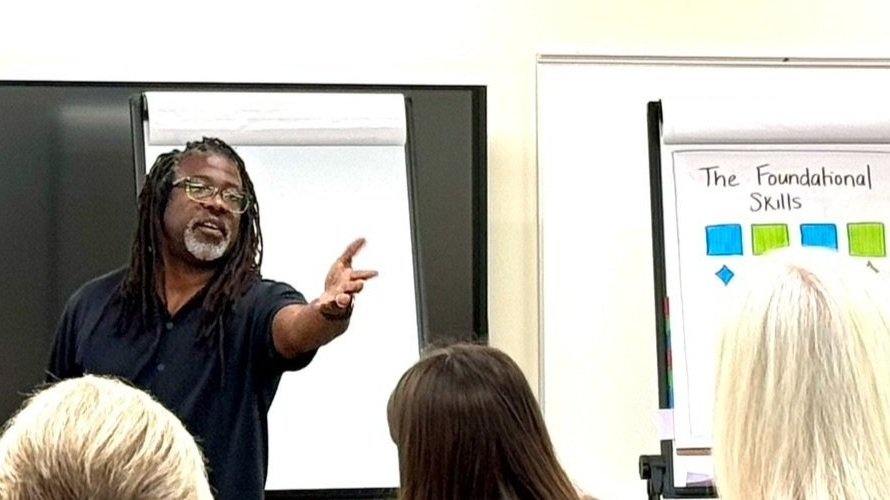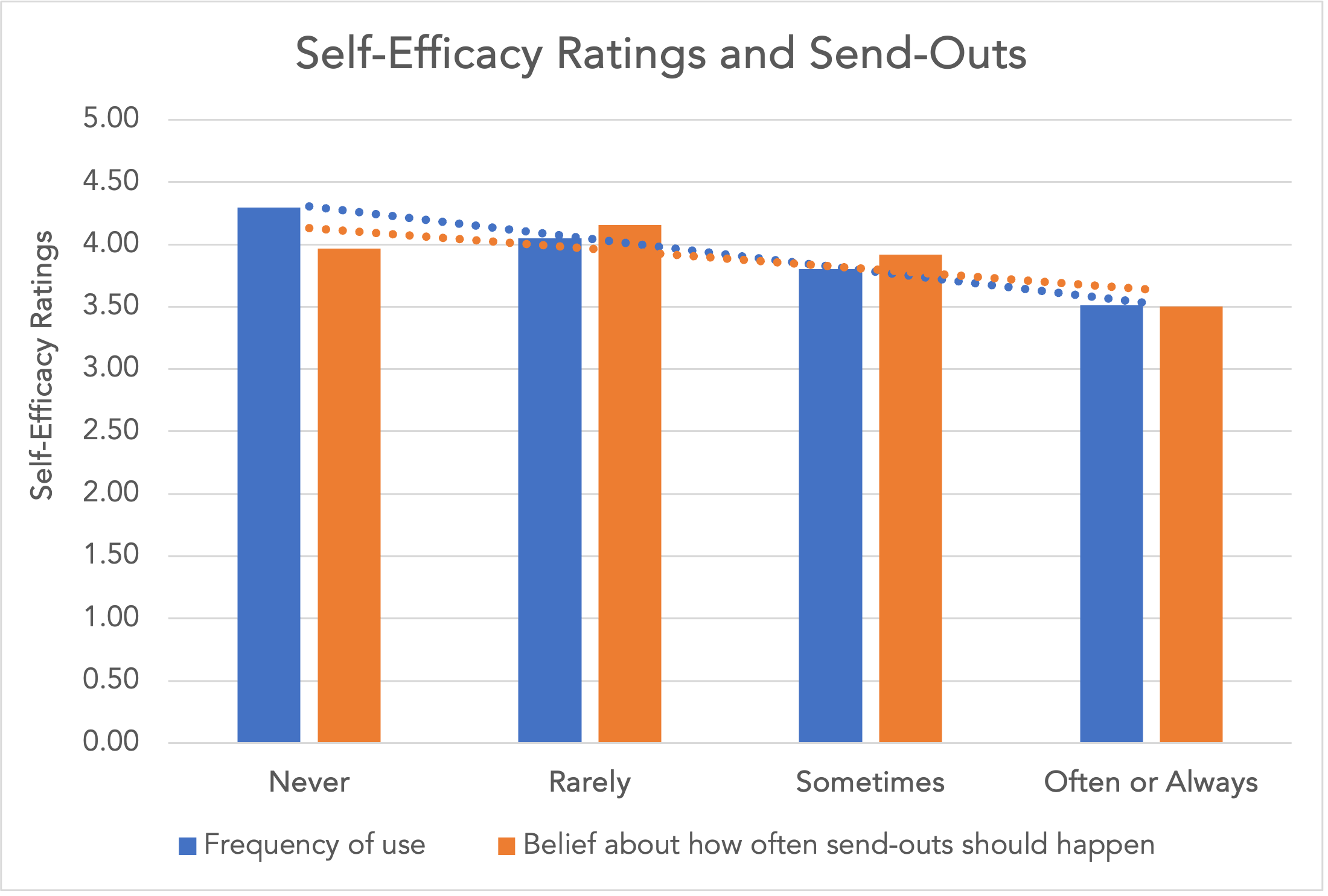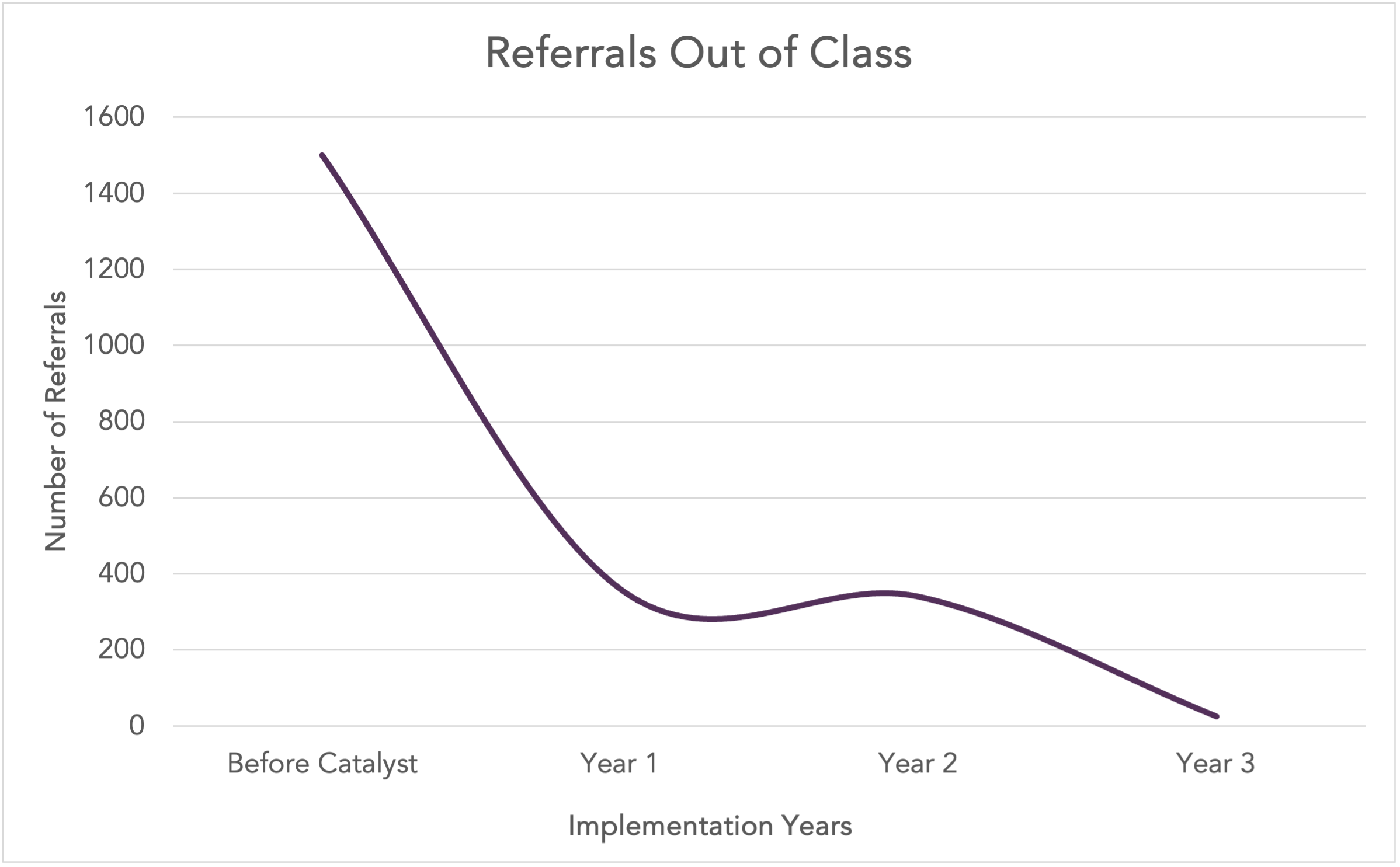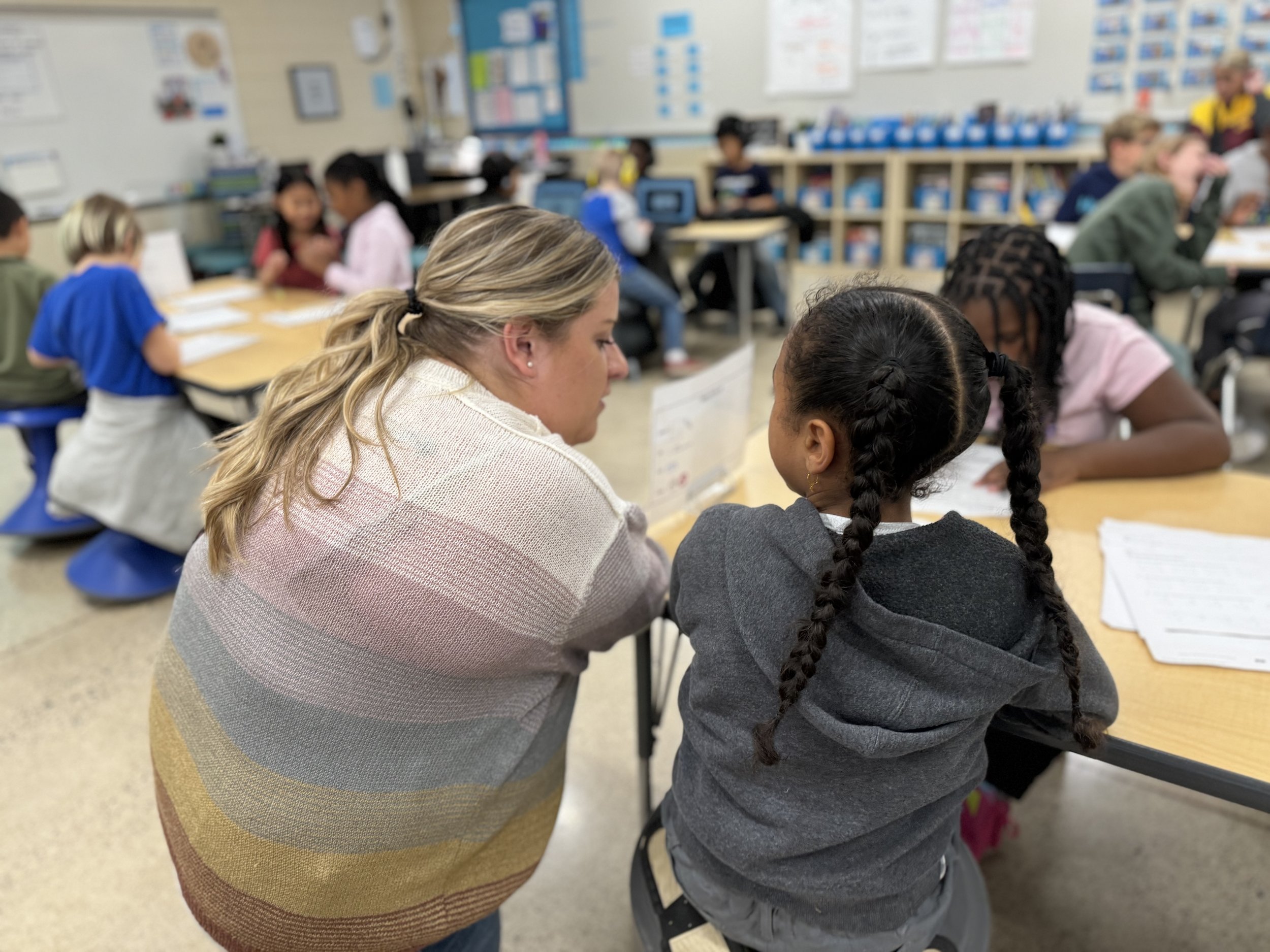
Impact Data
Measuring quantitative and qualitative impact is a top priority. These are some examples of the difference implementation makes.
Related Academic Research
Reed (2018) surveyed 1,182 teachers to determine the relationship between teachers’ self-efficacy and their level of Catalyst implementation. The statistically significant correlations included:
Foundational Skills certified teachers had higher self-efficacy in the area of management.
Demonstration certified teachers had higher teacher efficacy in the areas of Engagement, Instruction, and Management.
Elliott (2023) surveyed 2,841 teachers in Minnesota to examine the relationship between teachers’ self-efficacy for managing disruptive behavior and their beliefs about, and frequency of, sending students out of the classroom in response. Self-efficacy is a person’s belief in their own capacity to be successful. Higher ratings of self-efficacy was statistically correlated with:
Less frequent use of send-outs
The belief that send-outs should happen less frequently
Case Study Data
In a school with approximately 400 total students, the number of referrals in the year prior to Catalyst Implementation was close to 1,600. When launching Catalyst implementation, no policies for referring students changed, but the number of referrals dropped to only 25 by the third year.
Implementation level is measured by collecting observational data for individual educators. When an educator implements all 12 Foundational Skills most of the time in a single lesson, they become Catalyst Foundational Skills certified. As the percentage of certified staff increased, the rate of exclusionary discipline incidents trended downward.
Educator Reflections
I often joke that I have taken the Foundational Skills class more than any other person in the world. While that might not be true (although I’m pretty sure it is), I have taken the class at least once every year since becoming a teacher eight years ago. It is one of the few trainings that I find worthy of giving up my precious summer days. Every year brings a new group of students and a new dynamic in the classroom. Spending intentional time focusing on the basics of classroom management allows me to start the year building strong routines, which, in turn, allows me to get to more curriculum and spend more time on academics.
— Chelsea Regan, 3rd Grade Teacher
“I know it works. Each and every day it works. When I started working with Catalyst I was approximately 15 years into my career. Now in my 22nd year, it is the single most useful professional development undertaking I have ever experienced. Without it, I would have left teaching. So many things in the work of a teacher are exhausting -- too many to name. These strategies sustain me on the hardest days.”
— Nate Gauslin, Middle School Spanish Teacher
The skills I developed and continue to practice overtime have allowed me to show up as the best version of myself for my students. I have a more clear understanding of how my actions impact the classroom and am able to focus my energy on connecting with students. Catalyst has played a crucial role in molding me into the teacher I am today.
— Matt Amann, High School Science Teacher







